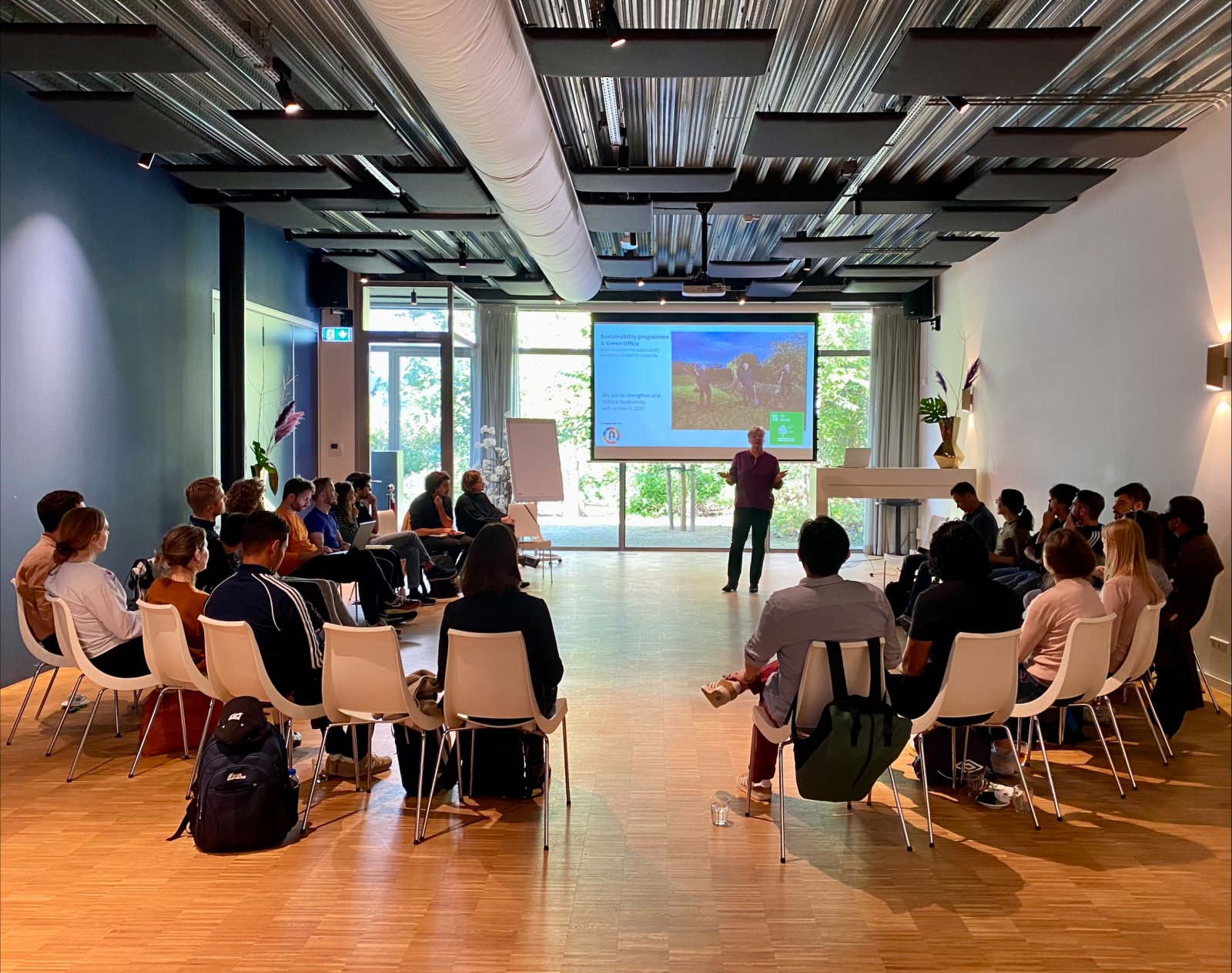Hot topic debates organised by the Transforming Cities Community
Shaking things up
Initiating radical transformative change means talking about challenging, deep and sometimes painful questions. In a series of five debates held across the city of Utrecht, the Transforming Cities Community has taken up some of these challenging questions in the field of sustainable urban development.
The goal of the debates is to have a diverse and interdisciplinary panel of academics from across Utrecht University (and outside) to discuss provocative and ‘taboo’ topics, steered by presentations from experts in the fields. The events were well received and showed that interdisciplinary discussions can help to develop deeper and nuanced academic insights and question the existing ways of sense making and valuing urban futures.
The debates covered various challenging and urgent questions, such as how political scientists can (or should) be, whether urban residents are ready to cohabitate with (wild) nature, whether smart cities are ‘the solution’, how concerns of populist voters can be taken seriously, and how to find synergies and avoid trade-offs between environmental sustainability and equality.
The participants came from diverse academic backgrounds, which made the discussions fruitful, exciting and engaging. The debates created an open an inclusive space that “got people to talk about what makes them uncomfortable” (Joost Vervoort), which was received well by all participants and opened up new ways of engaging with one another. The Community aims to continue this in a similar matter next year.

After each debate, the key speakers and participants were invited to co-produce a perspective paper, in which some of the debate topics are being discussed. As Niki Frantzeskaki noted, bringing together a “unique group of people to write papers who would usually not collaborate” is one of the key outcomes of the debates. The events were thus successful in bringing people together, forming alliances and connecting academics across different disciplines.
Despite these very different topics, a common central theme that crystallised in all of the debates was the Western bias of academic institutions and knowledge creation. The need to acknowledge and involve non-Western and indigenous ideas, institutions, knowledge and experience in academia was discussed lively. The Transforming Cities Community has thus decided to organise a ‘learning from the Global South’ workshop next year, which aims at bringing knowledge and experience from the Global South to the fore. In addition, Transforming Cities will keep on searching for the edges by organizing events on the topics like imagination infrastructuring, the role of researchers and impact and narratives of urban nature.
- Wednesday 21 September 2022: Politicizing science
- Thursday 6 October 2022: Rewilding the city
- Thursday 20 October 2022: Beyond techtopia
- Monday 31 October 2022: Taking populists seriously
- Thursday 24 November 2022: Not accepting a trade-off between equality and sustainability

